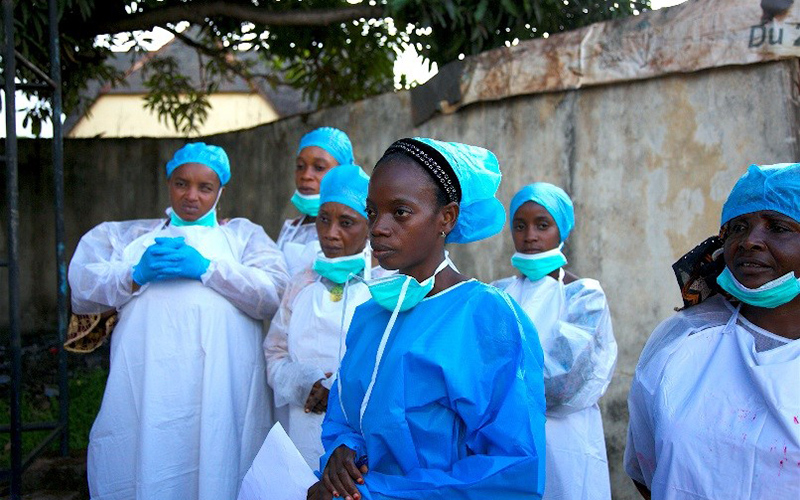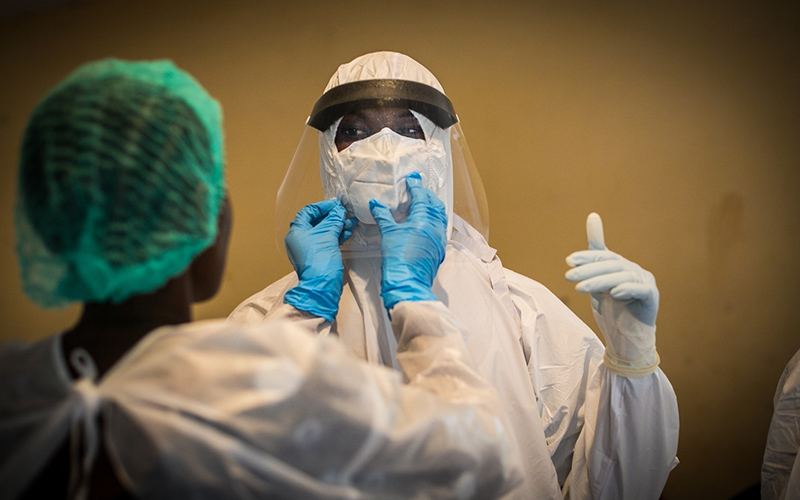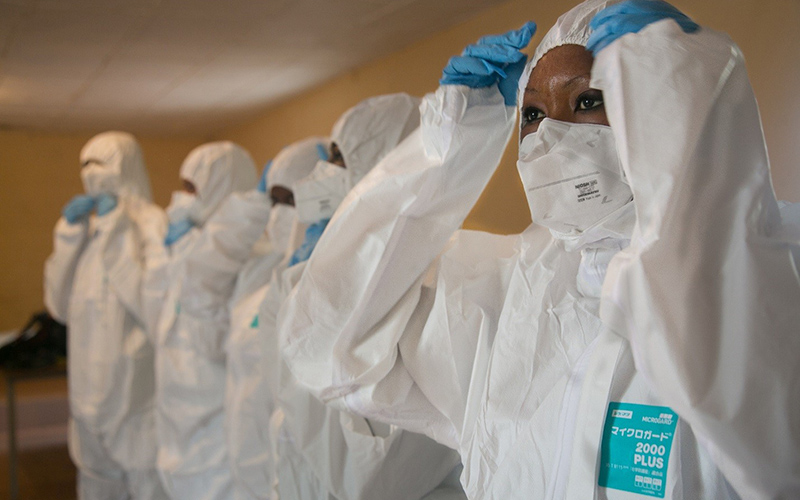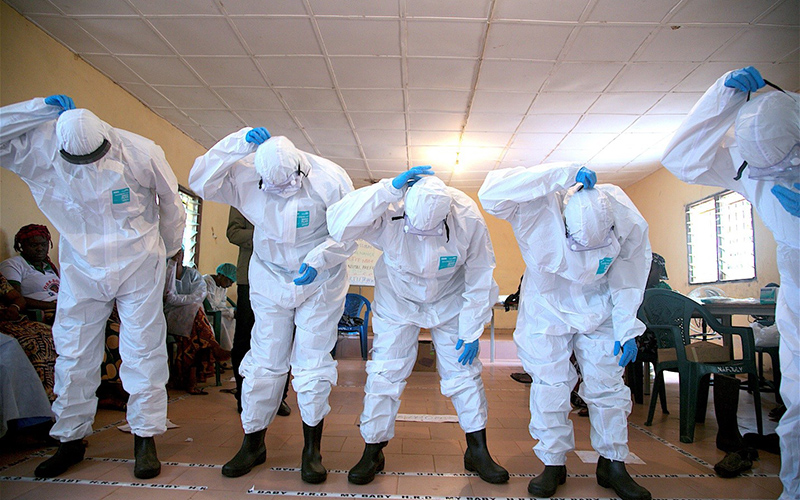Guinea Module 3: Safeguarding Guinea’s Health Responders
Without the right safeguards in place, medical facilities can turn into hotbeds of disease. Epi-détecte, a five-year project to improve disease surveillance in Guinea, has been setting up triage units around the country to detect illness earlier and closer to the source. But the triage units can’t operate safely if the workers inside them aren’t trained to protect themselves and others from the spread of infection.
According to a World Health Organization report, “health workers are between 21 and 32 times more likely to be infected with Ebola than people in the general adult population.” The success of Epi-détecte depends on ensuring that each individual triage unit is staffed with trained personnel and stocked with the right equipment.
Triage units are staffed by health workers employed by the Ministry of Health who are trained in infection prevention and control, or IPC. As part of the Epi-détecte program, RTI International has rolled out a set of trainings around the country focusing on IPC practices, such as how to safely put on and remove personal protective equipment like scrubs, masks, and latex gloves. Healthcare workers also learn how to properly wash hands and make the chlorine solution needed to disinfect equipment and surfaces.

Dr. Telly Diallo and triage trainees
“You can’t do triage without first understanding infection control,” said Dr. Telly Diallo, a public health specialist (PHS) leading a training session in the Labé district of north-central Guinea.
Assembled before her in a concrete room were two dozen participants in blue scrubs.
“The suit is very hot,” said a nurse named Hawa Seck, her patterned dress damp with perspiration. “It’s easy to put on, but if there is virus on the suit, taking it off can be dangerous. You have to be so careful.”

Scenes from a triage training in Dubreka, Guinea 01
At another training session in Dubréka, a town in the highlands north of Conakry, trainers simulated the arrival of new cases at the triage unit, with signs taped to the floor leading in different directions and to different course of action. The right direction depended on the diagnosis, and one by one, they quizzed the trainees: What should they ask the patient? What are the symptoms of cholera? Of yellow fever? If the patient has symptoms of Ebola, what then?
One trainee recalled when, during the earliest days of Guinea’s epidemic, a patient came in from Conakry. “We didn’t know at the time that Ebola was a problem,” he said. “We thought it was cholera, so we did tests and started to treat him without gloves.” When he learned the patient had tested positive for Ebola, “I was very afraid. I called my wife to explain.”

Scenes from a triage training in Dubreka, Guinea 02
“If we set up these units and train health workers to staff them, the people of Guinea won’t have to be scared; future outbreaks will be much more manageable.”
For Dr. Yattara, all of these efforts matter only if they are adding up to one goal: a strengthened healthcare system and workforce that communities trust and use. As recent history has shown us, better infection prevention and control protects healthcare workers in Guinea and people around the world by helping slow the spread of infectious diseases.
“I’m very much an optimist. My vision is that all districts in Guinea will mobilize a community response to protect themselves against all diseases.”

Scenes from a triage training in Dubreka, Guinea 03
About this story
CDC is working with 31 priority countries to develop global health security capabilities to protect Americans and people around the world from disease threats. This story illustrates Guinea’s commitment to:
- Workforce Development: Expanding the pool of skilled healthcare workers who can prevent, detect, and respond to outbreaks to keep a country and the world safer from diseases.
- Real-Time Surveillance: Launching and strengthening global networks of disease-surveillance systems that quickly detect outbreaks and assess risks.
The work featured in this story was done through close partnership with RTI International, an independent, nonprofit institute that provides research, development, and technical services to government and commercial clients worldwide. CDC and RTI international continue to partner with Guinea on strengthening systems and implementing innovative programs to help keep the country safe from infectious disease threats.
**Photos by Patrick Adams/RTI International